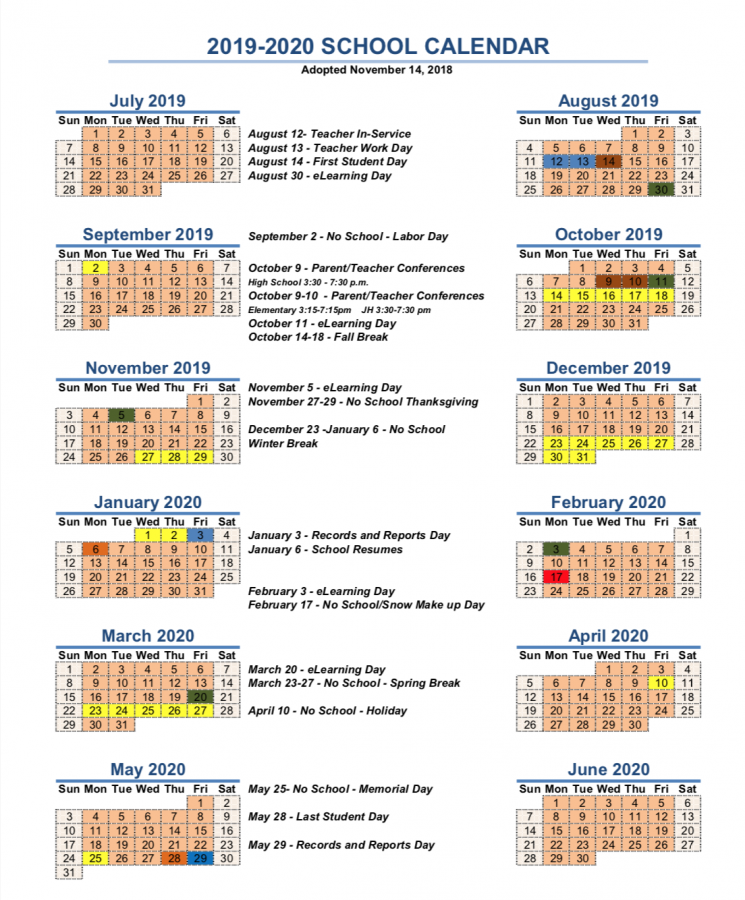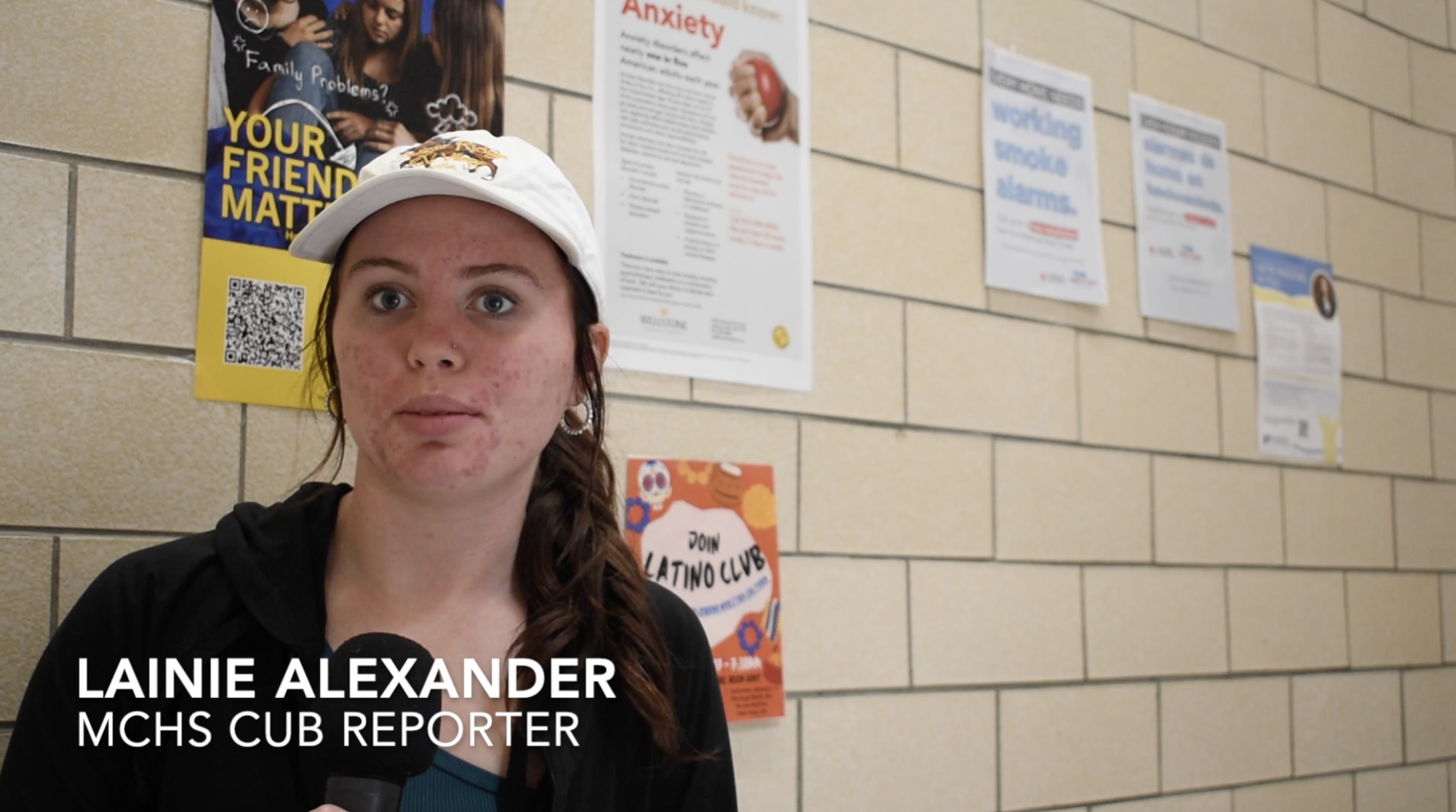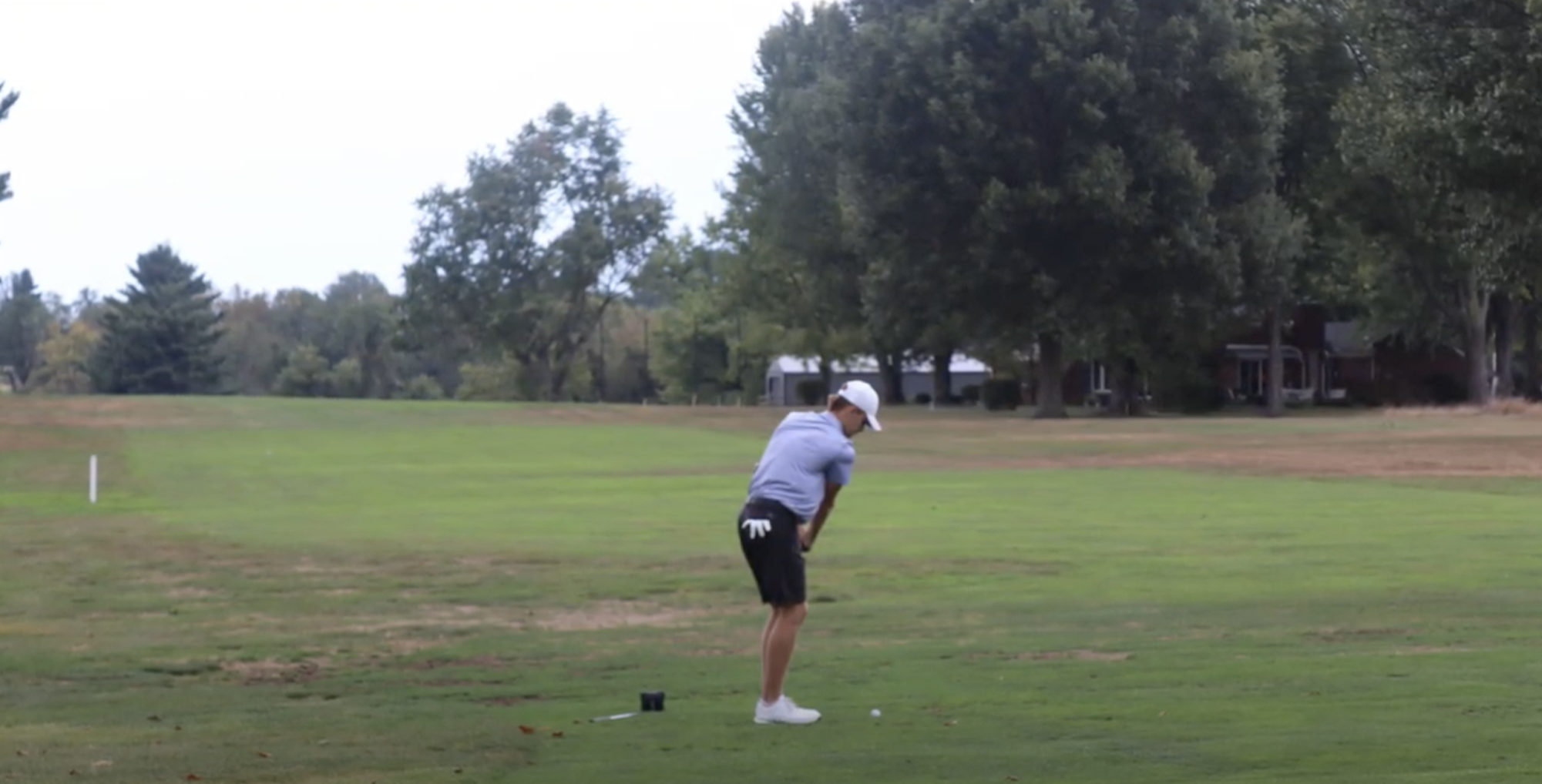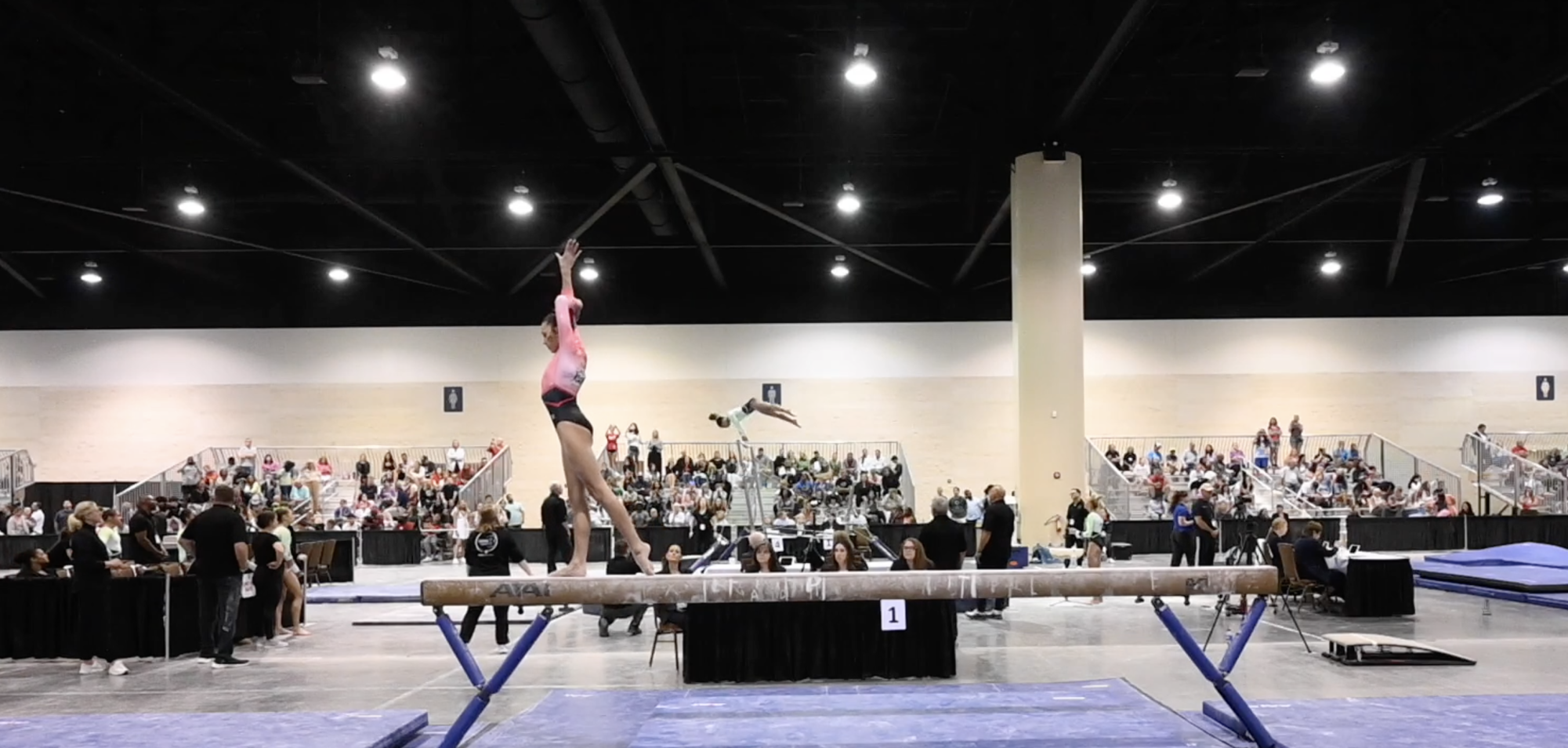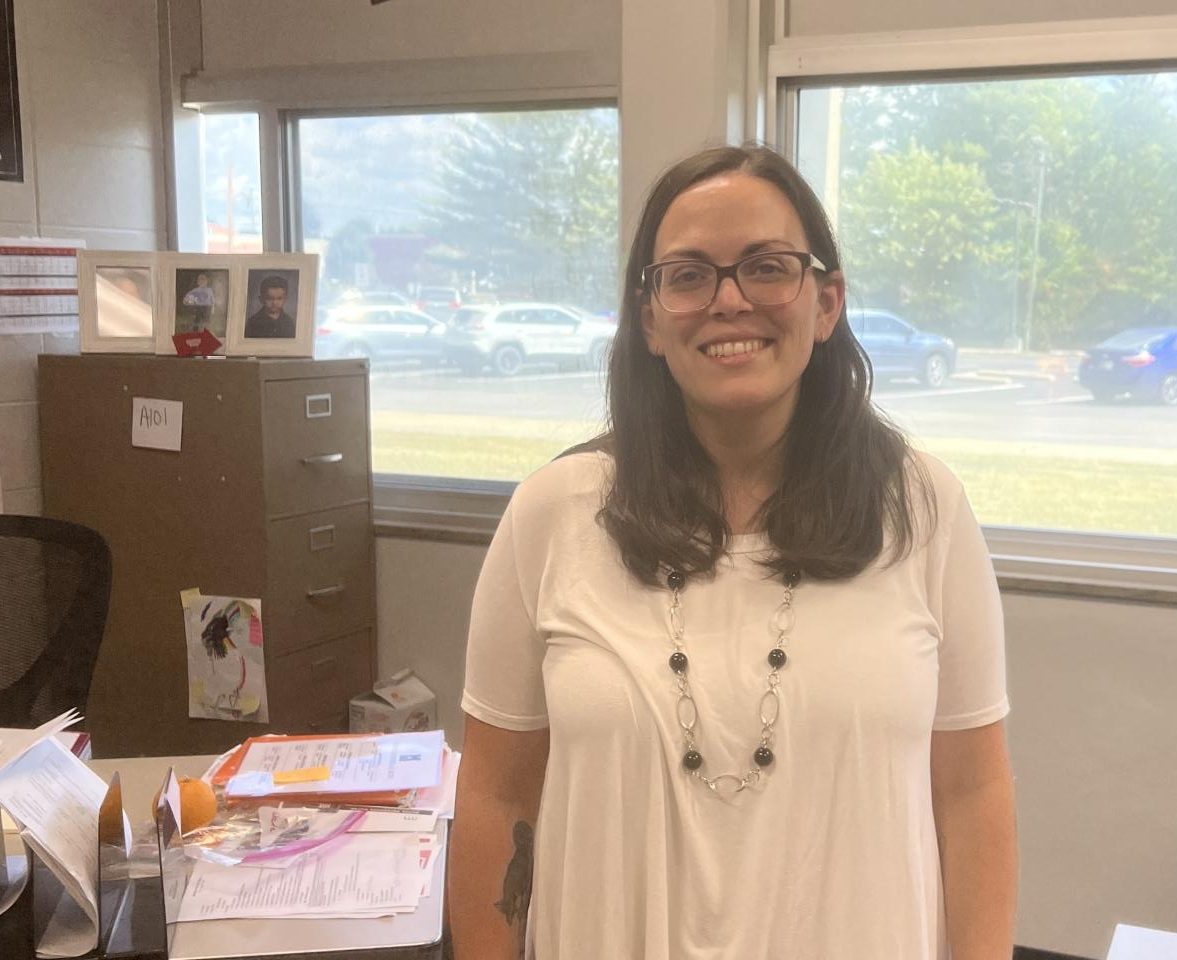MCHS Reacts to Schedule Change
December 13, 2018
Madison Consolidated Schools recently adopted a new school calendar for the 2019-2020 school year. The new schedule will now feature a longer summer and a shortened fall and spring break. It will still remain at a total of 180 days, only it will be balanced differently. This change has triggered a mix of positive and negative feedback from students, faculty and staff, as well as the community.
Although two weeks have been deducted, in total, from fall and spring break, that remaining time has been recycled back into summer break, resulting in an August 12th start date for teachers and August 14th for students. This has not proven favorable to some students.
“We need to have a longer fall and spring break so we can have a break from our studies because it stresses us out,” said Tiffany Vermillion, a junior at Madison Consolidated High School.
Another student, sophomore Kourtney Neukam stated, “We already get bored with the summer that we have, we want longer breaks during the school year to get our minds off of things and go on trips.”

Even though there has been some concern about the lack of breaks during the year by some students, there is no telling how this new schedule will end up effecting student performance, if at all. Superintendent of Madison Consolidated Schools Dr. Jeff Studebaker remarked that he felt that the new schedule may bring an uptick in student attendance.
“I believe that we will see fewer unexcused absences across the board by starting later,” Studebaker said.
Monsieur Heitz, the lone French teacher at MCHS stated that the shorter fall break has the possibility to be beneficial for student behavior.
“It seems like we get kids back in line from summer, and then they have a break, and then we have to start all over again. So the shorter fall break is good.”
Unfortunately there are always some concessions and for Monsieur Heitz, it is no different. “The shorter spring break has infringed on the yearly school trip to Europe…. We’ll have to take time off as field trip days for that,” Heitz said. Also, it’s okay with me if we start later in August. It gives me a little extra time.”

This change may seem sudden to some, but there has been a push in the Indiana Legislature in recent years to move the start date to after labor day for some time.
According to Dr. Studebaker, “By moving our start date later, we are showing that we are trying to keep our start date at a reasonable date in August.”
However, there is a more pragmatic, close to home reason for the shift as well. “One of the issues with an early August start date deals with the lag time between the start date for our district and when Ivy Tech starts. By making this adjustment, we can cut that lag by a week. By eliminating the week of make-up days prior to spring break, we were able to move the start date later in August.”
“It’s always nice to have breaks during the school year not just for the students but for the teachers because teaching is tough, and those breaks are good for them to re-energize. So it’s always nice to have that, but we’re pretty fortunate we have 180 school days, no matter how you look at it,” stated MCHS prinicipal Michael Gasaway.
Gasaway also agreed with Dr. Studebaker’s assessment. “Since we do have partnership with Ivy Tech, students who participate in that are not starting two to three weeks earlier than when Ivy Tech classes start.”
A poll sent out by The Madisonian to the faculty and staff of MCHS, showed that actually a majority were in favor of the change. 59.3% of respondents were in favor of of the schedule change while 40.7% were against. The comments and opinions included with the poll were quite varied.
One respondent commented, “I enjoy the extra time off in the fall and spring. It allows me to do projects and work that not might not be suited for summer. Often winter break seems to be very hectic with Christmas and New Year’s, so a little longer fall or spring break is nice for seeing family and friends.”
Another point of view looked at the possibility of delays at the end of the year. “I don’t really mind a somewhat shorter fall break, but one of the reasons we went to a longer spring break was to avoid pushing back graduation on years when there was a lot of bad winter weather. We’ve been lucky the last several years between mild winters and eLearning options, but I’m concerned that we are thinking we’re in the clear just because we’ve had several milder winters,” said an anonymous MCHS teacher.
According to our poll, many people are concerned about the absence of the first week of spring break being a fallback for snow days. “The built-in snow days at spring break make a lot of sense. We have not had to utilize them much thus far, but a big snow is inevitable. The time we had to stay an extra hour each day to make up for the missing inclement weather days was miserable. It would seem one extra week in the summer is not worth this risk.”
One student gave the origin story for why schools generally have long breaks in the summer.
“The reasons (sic) that longer summer was instated was to assist the farms and allowed the kids to tend to the farms. This was in the 1800’s. However, due to farms becoming more and more automated, farmhands are needed less and less. Children were created to help out on the farm. Now they’re created for a multitude of reasons. Summer Breaks just aren’t needed like they used to be.”
Another teacher explained, “With the longer summer, students will be able to work longer and that really helps a lot of students who need the extra money. The shorter breaks also benefit students because they tend to not forget so much on the shorter breaks and don’t forget the school routine as much.”
With any major change there will positives and negatives as well as blow back from people that like the status quo.
“Anytime you have changes, you’re going to meet some of that with resistance,” stated MCHS prinicipal Michael Gasaway.
Hopefully, however, these changes will benefit the school, students, and faculty in the long run
